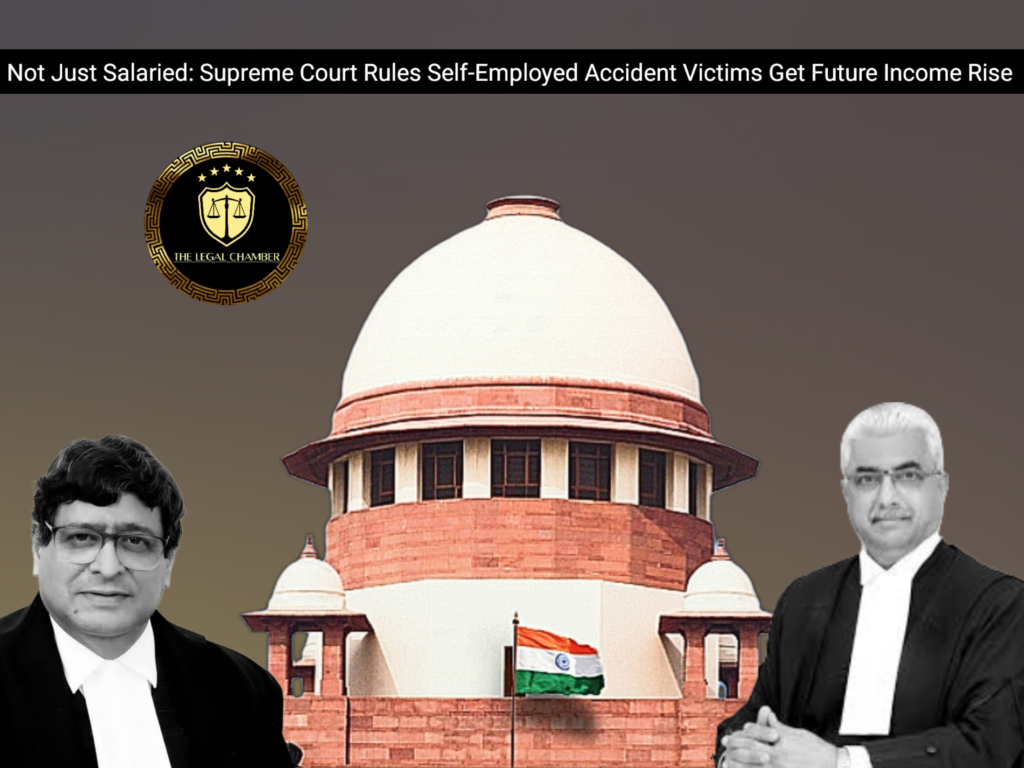
The Supreme Court held that self-employed claimants are entitled to future prospects, affirming the principles in Santosh Devi and Pranay Sethi. It further ruled that uncontroverted medical evidence on disability must be accepted in its entirety, and the percentage of disability assessed by the treating doctor cannot be arbitrarily reduced by the Tribunal or High Court without reasoning.
Facts Of The Case:
On November 19, 2016, at approximately 6:00 a.m., the appellant, Lokesh B, a 38-year-old tailor, was driving his Omni car on the Peenya flyover in Bengaluru. His vehicle collided with a stationary lorry that was allegedly parked in the middle of the flyover without any indicators or reflective warnings. As a result of the collision, Lokesh sustained grievous injuries, including skull fractures, frontal hemorrhage, trauma to the optic nerve causing visual impairment, and fractures to both wrists. He received initial treatment at Premier Sanjeevini Hospital and was subsequently hospitalized at Sparsh Hospital for a significant period. The Motor Accident Claims Tribunal initially awarded compensation but applied a 20% deduction for contributory negligence on the part of the claimant. The High Court later modified the compensation amount, which led to the appellant appealing to the Supreme Court for an enhancement, primarily challenging the exclusion of future prospects and the adopted disability percentage.
Procedural History:
The procedural history began with a claim petition (MVC No. 8056/2016) filed by the appellant before the Motor Accident Claims Tribunal in Bengaluru. The Tribunal passed an award on February 20, 2018, granting compensation but attributing 20% contributory negligence to the claimant. Dissatisfied, both the claimant and the insurer filed separate appeals (MFA Nos. 5356/2018 and 3155/2018) before the High Court of Karnataka. In its common judgment dated August 02, 2021, the High Court partly allowed the insurer’s appeal, dismissed the claimant’s appeal for enhancement, and modified the quantum of compensation while upholding the 20% contributory negligence finding. The claimant then approached the Supreme Court via Special Leave Petitions, which were granted, leading to the instant civil appeals.
READ ALSO :Justice Delayed is Justice Denied: Supreme Court Orders Fresh Bail Hearing for Convict
Court Observation:
The Court observed that the High Court erred in excluding future prospects for the self-employed appellant, reaffirming the settled legal principle from Santosh Devi and Pranay Sethi that such claimants are entitled to an addition for future prospects. It further held that the uncontroverted medical evidence provided by the neuropsychologist from NIMHANS, which assessed a 41.77% disability, was neither rebutted nor doubted. Therefore, the Tribunal and High Court were not justified in arbitrarily reducing the disability percentage to 35% without any reasoning or contrary evidence.